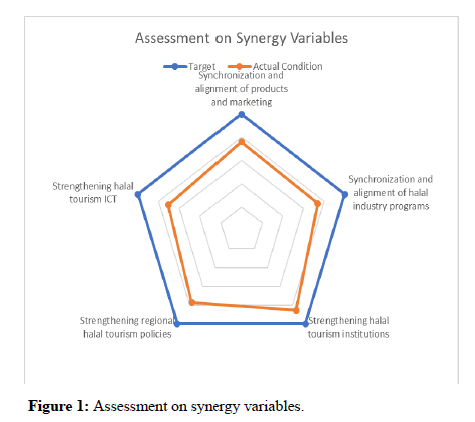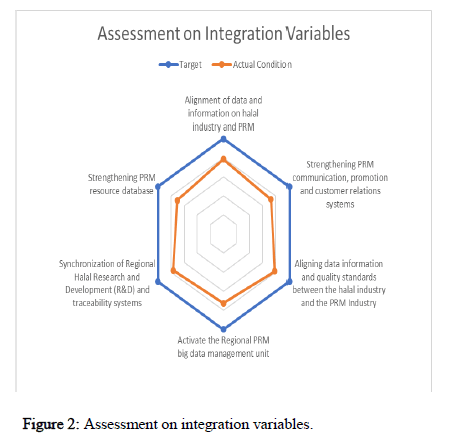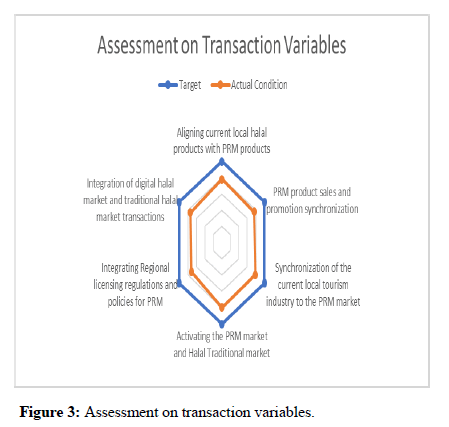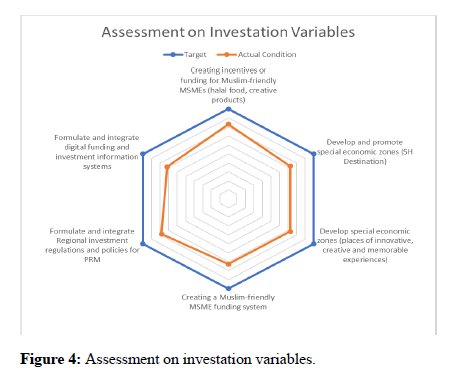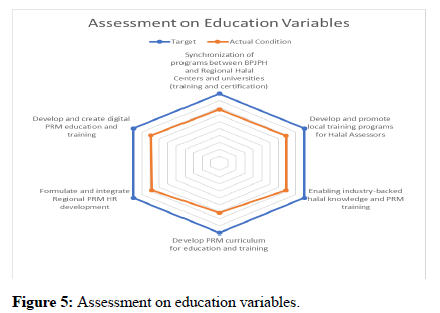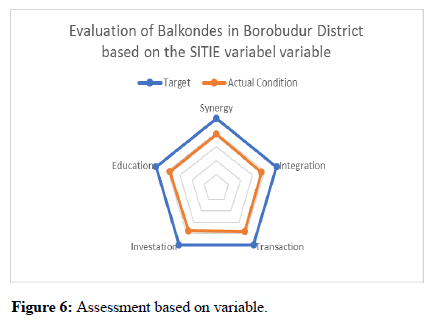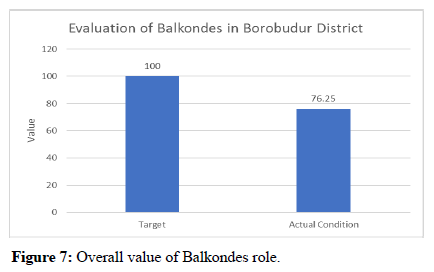Research Article, J Tourism Res Hospitality Vol: 12 Issue: 2
The Assessment of “Balkondes” Organization Management in Muslim-Friendly Tourism Villages around Borobudur Temple, Yogyakarta
Anang Sutono1*, Sumaryadi1, Wisnu Rahtomo2, Faisal F. Puksi3, Odang Permana4, Shaharuddin Tahir5, Azwin Aksan6 and Kumar Ashutosh7
1Department of Tourism Business Management, Bandung Institute of Tourism, Bandung, Indonesia
2Department of Tourism Destination Management, Bandung Institute of Tourism, Bandung, Indonesia
3Department of Tour Management, Bandung Institute of Tourism, Bandung, Indonesia
4Department of Destination Study, Bandung Institute of Tourism, Bandung, Indonesia
5Department of Tourism, University Utara Malaysia, Kedah, Malaysia
6Department of Hotel and Tourism Management, University of Technology MARA, Selangor, Malaysia
7Department of Tourism Management, University of Delhi, Delhi, India
*Corresponding Author: Anang Sutono
Department of Tourism Business
Management at Bandung, Institute of Tourism, Bandung, Indonesia,
Tel: (+62) 8122402770
E-mail: anang@stp-bandung.ac.id
Received date: 21 December, 2022, Manuscript No. JTRH-22-84377;
Editor assigned date: 23 December, 2022, PreQC No. JTRH-22-84377 (PQ);
Reviewed date: 06 January, 2023, QC No. JTRH-22-84377;
Revised date: 01 March, 2023, Manuscript No. JTRH-22-84377 (R);
Published date: 08 March, 2023, DOI: 10.4172/2324-8807.1001008
Citation: Sutono A, Sumaryadi, Rahtomo W, Puksi FF, Permana O, et al. (2023) The Assessment of “Balkondes” Organization Management in Muslim- Friendly Tourism Villages around Borobudur Temple, Yogyakarta. J Tourism Res Hospitality 12:2.
Abstract
This study aims to assess the role of the organizational management of the village economic center (Balkondes) in a Muslim-friendly tourism village around Borobudur temple, Yogyakarta. The concept used in this research is the concept of management organization (management system) with a Synergy, Integration, Transaction, Investment, and Education (SITIE) approach. This study uses a quantitative approach to assess the extent of the role of Balkondes in carrying out its function as a management organization. This research was conducted in three stages, namely desk research, focus group discussion, and survey and interview. This research is expected to be a trigger for other destinations in developing a management organization governance system in a Muslim- friendly tourism village in Indonesia. The results of the assessment of management organization indicated that the variable Synergy, Integration, Transaction, Investment, and Education (SITIE) in an average value of 76.25%. It means the position of management organization in the criteria of respectable.
Keywords: Assessment; Muslim-friendly tourism; Tourism village; Tourism organization; Organization management
Introduction
Halal tourism has been recorded to have continued to grow steadily since 2000. The global growth of Muslim travelers grew rapidly from 25 million in 2000 to 140 million in 2018 or growing 25% per year [1]. This growth is predicted to continue to increase to 230 million with a turnover of USD 300 billion (4,200 trillion) in 2026. Halal tourism has now become a global mainstream market, not just a niche market. Halal tourism is a current and very promising tourism trend. Efforts to meet the need for tourist destinations that are friendly to Muslim tourists are a very rational and profitable choice [2].
Many countries, both Islamic and non-Islamic countries, believe in this and seek to make halal tourism one of the focuses of tourism development including Indonesia. Until 2018, Indonesia's Halal tourism market grew by 15% and attracted 2.6 million foreign Muslim tourists (ministry of tourism's halal tourism development acceleration team, 2019) [3-6].
The development of tourism trends based on beliefs and pilgrimages, especially Muslim tourists, has triggered many scholars to research the intricacies and holistic studies of this matter [7]. The following are some previous studies which in addition to triggering this research, but at the same time strengthen the basis of this research as a whole.
Indonesia, as the largest Muslim country in the world, has enormous potential to become a world halal tourism destination. The strength of halal tourism lies in the readiness of the destination to accept Muslim tourist visits. Tourism destinations must be able to meet the specific needs of Muslim tourists during their travels [8]. The development of tourism product components, which include amenities, attractions, and accessibility, needs to be aligned with the profiles, needs, expectations, and preferences of Muslim tourists [9]. This is very important to create quality products for halal tourism destinations.
Meeting the needs, expectations, and preferences of Muslim tourists will make tourists feel satisfied and increase the potential for repeat tourist visits. The existence of additional specific 'requirements' to fulfill the needs of being a Muslim when traveling, requires destinations to understand the profile of visiting Muslim tourists and make this information one of the main considerations in its development [10].
The development of Indonesian halal tourism gained momentum in 2019. Indonesian halal tourism was ranked 1st as the world's best halal tourism destination with Malaysia master card-crescent rating, 2019. However, this achievement has not been accompanied by the ability to attract Muslim foreign tourists. Indonesia is still far behind Malaysia. Malaysia managed to reach 5.38 million Muslim foreign tourists in 2017, compared to Indonesia which was only 2.6 million in 2018 [11].
One of Indonesia's strategic steps in encouraging the development of halal tourism is to assess and rank the IMTI (Indonesia Muslim Travel Index). The existence of IMTI is considered capable of capturing positive growth in Indonesia's 10 leading tourism destinations. This can be seen in the positive growth of all leading halal tourism destinations from 2018 to 2019 master card-crescent rating, 2019. The results are carried out using the same criteria as the GMTI (Global Muslim Travel Index). IMTI assessment is also carried out directly by master card-crescent rating, the organizer of GMTI [12]. The use of the GMTI criteria, which are designed to assess a country globally, is deemed necessary to adjust the indicators used to be more relevant to the characteristics of tourism destinations in Indonesia.
The positive growth trend can be a trigger for all destinations to further improve the ranking of their leading halal tourism destinations, Yogyakarta is no exception. Yogyakarta is one of the destinations in Indonesia which is the main destination for every tourist who visits both domestic and foreign tourists with its attractions, one of which is the Borobudur temple which is administratively included in the Magellan Regency, Central Java province [13]. The large number of tourists visiting Borobudur temple is not a guarantee that it will increase the income and welfare of the people around the temple. Based on Magelang Regency data in 2021 figures, Borobudur district ranks second in the largest number of poor people in Magelang regency (BPS, Magelang regency in numbers, 2021). Surprisingly, Borobudur temple is located in Borobudur district. This shows that a large number of tourist visits does not necessarily provide benefits for the welfare of the surrounding community [14]. Therefore, research is needed on the organizational management of the village economic center (Balkondes) as a village business unit so that it can play a maximum role in improving the economy and welfare of the village community.
This research focuses on the governance of the Balkondes management organization in the Borobudur district. The management organization concept with the SITIE approach (Synergy, Integration, Transactions, Investment, and Education) is used as a guide in determining the criteria for assessing the governance of Muslim-friendly tourist villages.
The purpose of this research is to identify and analyze the actual condition of Balkondes in Borobudur district and to develop tourist villages around Borobudur temple as Muslim-friendly tourist villages.
Materials and Methods
This research was conducted with a quantitative approach to identify the actual condition of the role of Balkondes in tourist villages around Borobudur temple, Magelang Regency, Central Java province. For this purpose, this study uses a descriptive method to more deeply explore the conditions of management of the Balkondes management organization in the tourist village around Borobudur temple. This research was conducted through several stages, namely; conducting a concept review and theoretical description of the management organization concept with the SITIE approach (Synergy, Integration, Transaction, Investment, and Education); identifying aspects of SITIE; as well as assessing the management of the Balkondes management organization for Muslim-friendly tourist villages around Borobudur temple.
Data collection in this study was carried out in several ways, namely, through literature studies, Focus Group Discussions (FGD), as well as by conducting surveys, and interviews. FGDs were conducted by involving relevant stakeholders, including; community (represented by the core management of Balkondes in tourist villages around Borobudur temple), industry (represented by tourism business actors, both accommodation services, food and drink services), and government (represented by the village government and BUMN-PT. Taman Wisata Candi).
The analysis used to identify the potential in this research is to use the management organization concept approach with the SITIE approach. The SITIE approach is an approach to assessing the role of a management organization in carrying out its functions in Muslim-friendly tourist villages. The assessment criteria contained in the SITIE model consist of 5 (five) variables. The five variables are; synergy, integration, transaction, investment, and education [15]. Each of these variables consists of 29 dimensions, and each of these dimensions also consists of several assessment indicators, so the total assessment indicators in the SITIE model are 60 indicators.
The relationship between the science of belief and the philosophy of divinity with the science that studies travel or recreational needs have existed for a long time. The motivation to travel to visit religious holy places or simply retrace the development of religion is one of the motivations that has emerged long ago and continues to be carried out by most religious people in the world. However, the development of this trend has not been matched by a mature and comprehensive study with the lack of studies on tourism and religious beliefs/principles. And as an implication of the lack of studies on tourism based on the principle of religion/belief, until now its development in several tourist destinations in the world is still lacking.
The emergence of halal tourism terminology is the result of efforts to meet the needs of Muslim tourists and become a tourism market that continues to increase. The meaning of halal tourism or what some people call Islamic tourism is a type of tourism development that pays attention to special principles according to religious teachings/Islamic beliefs, especially in providing daily needs (Table 1).
| No. | Author | Paper title | Year | Summary |
|---|---|---|---|---|
| 1 | Azreen Hamiza, Abdul Aziz | Muslim friendly tourism: Concept, practices and challenges in Malaysia. | 2018 | From the success story of Malaysia’s experience in promoting the MFT, hurdle come and go towards the challenges in developing and establishing MFT to make it visible to the world. Some of the challenges of the MFT in Malaysia are technological advancement, economy development and people and organization. |
| 2 | Armiadi Musa, Hendra Halim, Bismi Khalidin, and Azharsyah Ibrahim | What determines Muslim-friendly tourism in Aceh? | 2021 | When travelers articulate the MFT, inexperienced travelers have the opportunity to improve their understanding of destination attributes. Determining to travel to a particular destination can cause tourists to become dependent on the interpersonal influence of the MFT. |
| 3 | Junaidi | Halal-friendly tourism and factors influencing Halal tourism | 2020 | Halal tourism has tremendous potentials to be developed along with rise of Muslim consumer awareness of keeping the values of the sharia even in tourism activities. It occurs because the teachings of Islam set not only worshiping God but also directing the relationship between human beings (muamalah). The concept of halal tourism, then, becomes a concept of tourism containing certain needs. |
| 4 | Sugeng Santoso, Winda Widyanti, Ari Ana Fatmawati, Rian Ubaidillah, Salmi Mohd Isa | Analysis of Muslim friendly tourism development in Indonesia | 2021 | Several implications as the result: The facility which is needed is places of worship, food and beverage services that are Muslim-friendly, and the availability of travel agencies that offer Muslim-friendly travel packages. Labeling of Halal certification on food and beverage processing that applies the CHSE (Clean, Health, Safety, Environment) standard is a strategy offered on the demand side. On the linkage side, the development of tourism must involve several administrative areas. Besides that, it is necessary to increase education to the community, and it must be in accordance with applicable customary regulations. |
| 5 | Mohamed Battour, Mohamed Salaheldeen, and Khalid Mady | Halal tourism: Exploring innovative marketing opportunities for entrepreneur. | 2020 | New halal tourism definition is suggested based on the current practices in this field. The paper also provided new prospects for halal entrepreneurs that could enable them to start new ventures in halal tourism industry. |
| 6 | Eka Dewi Satriana, Hayyun Durrotul Faridah | Halal tourism: Development, chance, and challenge. | 2018 | The increase in Muslim tourists from year to year is an opportunity and a challenge for the tourism sector to develop halal tourism. Many countries (both Muslim and non-Muslim majority) are trying to develop halal tourism. However, judging from the existing concepts and principles of halal tourism, these countries generally only try to create a Muslim-friendly atmosphere. |
Table 1: Previous research on halal Muslim-friendly tourism development.
The development of halal tourism is not only a need for Muslim tourists but also for tourists with other beliefs/religions. This is based on the fact that halal tourism products are considered to have better quality and are managed with strict principles. In addition, the development of halal tourism is also based on respect for others and trust/honesty in its provision which ultimately gives birth to guarantees regarding the quality of products and services that will be received by tourists, whoever it is. Therefore, the development of tourism that has been devoted to halal tourism needs to pay attention to special principles as a wedge between tourism science and the teachings of religion/belief so that it can accommodate tourists properly, and can provide guarantees regarding correct practice according to applicable teachings [16].
Results and Discussion
After the FGD was conducted, the collected data were then analyzed using the SITIE model to assess the extent of the role of Balkondes in carrying out its functions in Muslim-friendly tourist villages around Borobudur temple. Assessment is carried out on each variable, dimension, and indicator [17].
The first assessment is an assessment based on indicators. This assessment is carried out to see which indicators are the strongest indicators of each dimension. The results of the assessment of the role of Balkondes in Muslim-friendly tourist villages around Borobudur temple based on indicators are as follows (Table 2).
| No. | Variables | Dimensions | Indicators | Value |
|---|---|---|---|---|
| 1 | Synergy: Focal point involving MFT stakeholder roles. | Product and marketing synchronization and alignment. | Regional/regional MFT marketing products and programs are in sync. | 89 |
| MFT product information is connected on regional digital and non-digital platforms. | 64 | |||
| Synchronization and alignment of halal industry programs. | Formed a business forum among regional MFT business actors. | 70 | ||
| Established effective communication and networking between MFT business actors. | 77 | |||
| Strengthening halal tourism institutions. | Collaboration between destination managers (areas/regions) through cooperation/MoU. | 84 | ||
| Formed associations/groups that are active in carrying out collaborations between destination managers. | 84 | |||
| There is a continuous joint program. | 89 | |||
| Strengthening regional halal tourism policy. | Identified tourism regulations that support MFT in the region | 82 | ||
| SPM regulations (Perda/Pergub/Perbup/Perwali) were formed in the regions. | 73 | |||
| Strengthening Halal tourism ICT. | Local (regional) MFT digital platform formed | 70 | ||
| Connect with global MFT Platform | 70 | |||
| 2 | Integration: Efforts to complement each other's resources and adapt to the structure of activities in MFT | Alignment of data and information on halal industry and MFT. | Halal industry data center and MFT are formed | 77 |
| An independent data update system was formed for related business stakeholders. | 80 | |||
| Strengthening MFT komunikasi communication, promotion and customer relations systems. | Regional MFT integrated customer service center is formed. | 70 | ||
| There is an integrated market information service system for MFT business stakeholders. | 75 | |||
| Aligning data information and quality standards between the halal industry and the MFT industry. | There is a regional halal product data integration system (digital and non-digital platforms). | 80 | ||
| There is a regional MFT product data integration system (digital and non-digital platforms). | 77 | |||
| Activate the regional MFT big data management unit. | There is a regional MFT data integration task force. | 73 | ||
| There is a Regional MFT data integration platform (self entry/input data system). | 73 | |||
| Synchronization of regional halal Research and Development (R and D) and traceability systems. | There is a regional Halal product tracking system (digital and non-digital platforms) | 75 | ||
| There is an MoU on MFT research collaboration with sustainable higher education. | 77 | |||
| There is an MoU of cooperation in tracking halal products with a sustainable halal center. | 77 | |||
| Strengthening MFT resource database. | There is an integrated MFT resource database management in the regions. | 70 | ||
| There is a MFT resource data integration system. | 70 | |||
| 3 | Transaction: MFT business deal meeting point. | Aligning current local halal products with MFT products. | There is a center for local products that are included in the MFT tour package. | 80 |
| There is a scheduled event program involving local halal products capable of contributing. | 77 | |||
| MFT product sales and promotion synchronization. | There is an integrated MFT tour package promotion and sales program. | 77 | ||
| A regional integrated MFT promotion and sales task force was formed. | 75 | |||
| Synchronization of the current local tourism industry to the MFT market. | There are creative MFT product development plans and programs. | 80 | ||
| Collaboration is established between operators of MFT packages and conventional packages. | 77 | |||
| Activating the MFT market and halal traditional market. | Strengthening traditional markets by adding halal-certified product services. | 84 | ||
| Strengthening MFT tourism products on local and global digital platforms. | 75 | |||
| Integrating regional licensing regulations and policies for MFT. | Inventory of local and national regulatory products for MFT development (multi-sector). | 73 | ||
| Strengthening MFT program policies through advocacy (regional executives and legislatures). | 70 | |||
| Integration of digital halal market and traditional Halal market transactions. | There are efforts to synchronize transaction systems on traditional and digital halal markets in the regions. | 73 | ||
| A digital platform is formed that performs the function of synchronizing transaction systems in the halal market. | 75 | |||
| 4 | Investation: Efforts to open investment opportunities and MFT business financing. | Creating incentives or funding for Muslim-friendly MSMEs (halal food, creative products) | There is an incentive program for the development of local halal MSME products. | 82 |
| There is a strengthening of local halal MSME products through MSME capital assistance. | 84 | |||
| Develop and promote special economic zones (SH destination). | There is an initiation of a special economic zone development plan (smart halal destination). | 70 | ||
| Strengthening advocacy and promotion to MFT stakeholders in an effort to realize the formation of special economic zones (SH destinations) | 75 | |||
| Develop special economic zones (places of innovative, creative and memorable experiences). | There is a data map of the potential area of a minimum of 100 hectares in the area. | 73 | ||
| Conducive collaboration between tourism industry players in the region through local and regional associations. | 73 | |||
| Creating a Muslim-friendly MSME funding system. | A banking syndicate was formed in the regions that provided MFT MSME capital loans in the regions. | 70 | ||
| Programmed distribution of village funds to BUMDes as a form of addition to halal MFT MSME business capital. | 75 | |||
| Formulate and integrate regional investment regulations and policies for MFT. | The existence of regional regulations that serve as guidelines for the development of MSME MFT business. | 82 | ||
| Integration of local regulations and regulations that support local MFT investment. | 75 | |||
| Formulate and integrate digital funding and investment information systems. | The existence of a regional digital platform that provides regional MFT investment information. | 73 | ||
| The integration of information on potential regional MFT investments is one-stop | 70 | |||
| 5 | Education: Dissemination and certification of applied MFT knowledge. | Synchronization of programs between BPJPH and regional Halal centers and universities (training and certification). | Compilation of education programs and dissemination of MFT in the regions. | 77 |
| The integration of the BPJPH program with the center for halal university studies in the region. | 77 | |||
| Develop and promote local training programs for halal assessors. | There is a periodic and ongoing training program for halal supervisors in the regions. | 80 | ||
| There is a training program for Halal assessors in the region periodically and continuously | 77 | |||
| Enabling industry backed halal knowledge and MFT training. | There is a collaboration of halal information updating training program between BPJPH and the MFT industry. | 77 | ||
| There is a collaboration program for MFT BPJPH, MUI and industry training periodically and continuously. | 80 | |||
| Develop MFT curriculum for education and training. | There is a MFT training curriculum in formal educational institutions at the secondary and higher education levels. | 70 | ||
| There are ongoing efforts to update MFT knowledge materials in secondary and higher formal education institutions. | 73 | |||
| Formulate and integrate regional MFT HR development. | An integrated MFT HR development program in the regions. | 77 | ||
| There is a MFT HR professional certification program available. | 80 | |||
| Develop and create digital MFT education and training. | Digital platform based MFT training available. | 80 | ||
The integration of existing MFT HR training by involving various parties (MFT actors and industry). |
80 |
Table 2: Assessment of the role of Balkondes in Muslim-friendly tourism villages around Borobudur temple based on indicators.
From the Table 2 above, it can be seen that product indicators and regional/regional MFT marketing programs are in sync; and there is a sustainable joint program that has the highest score among other indicators [18]. This shows that the role of Balkondes in creating products and marketing programs has been well established.
The second assessment is an assessment based on dimensions. This assessment is carried out to see which dimension is the strongest dimension of each variable. The results of the assessment of the role of Balkondes in Muslim-friendly tourist villages around Borobudur temple based on dimensions are as follows.
As seen in Figures 1-3, in the synergy variable, the dimension of strengthening halal tourism institutions is the strongest in the role of Balkondes management organizations in Muslim-friendly tourist villages around Borobudur temple, while in the integration variable, the strongest dimension in the role of Balkondes management organizations in Muslim-friendly tourist villages (Figure 4). Around the Borobudur temple is the dimension of data and information harmonization of the halal industry and Muslim Friendly Tourism (MFT) [19]. For the transaction variable, the dimension that is considered to be the strongest in the role of the Balkondes management organization in the Muslim-friendly tourist village around the Borobudur temple is the dimension of activating the MFT market and halal traditional market (Figure 5).
In addition, for the other two variables, namely the investment variable and the education variable, the strongest dimension in the role of the Balkondes management organization in the Muslim-friendly tourist village around Borobudur temple is the dimension of creating incentives or funding for Muslim-friendly MSMEs for the investment variable and the dimension of developing and creating education and digital MFT training for the education variable.
Meanwhile, the third assessment is an assessment based on variables. The results of the assessment of Pager Harjo village based on the variables are as follows.
Figure 6 shows that the role of Balkondes for Muslim-friendly tourist villages around Borobudur temple in involving the role of MFT stakeholders in tourist villages around Borobudur temple is quite good so that the synergy process between MFT stakeholders can be well established. The thing that needs to be improved is when Balkondes plays the role of an integrator to complement the available resources and the adaptation process to the structure of activities in MFT needs to be improved again. Overall, the actual condition of the role of Balkondes management organizations in Muslim-friendly tourist villages around Borobudur temple is currently considered good enough in carrying out its function to develop Muslim-friendly tourist villages around Borobudur temple. This is shown in Figure 7, where the overall value of the role of Balkondes management organizations in Muslim-friendly tourist villages around Borobudur temple is 76.25.
Conclusion
Increasing the welfare of the community in tourist villages does not only depend on the potential and resources it has, but the role of the village management organization plays a very important role in improving the welfare of the village community. Balkondes is a form of business unit owned by the village, one of which is to manage a tourist village business so that it can provide added value for the village community so that in the end it can improve the welfare of the village community. Therefore, the role of the Balkondes management organization in a village has an important position in carrying out all village economic activities.
Based on the results of the assessment of each variable, dimension, and indicator, the role of Balkondes in Muslim-friendly tourist villages around Borobudur temple currently has advantages in the synergy variable, especially on the indicator “regional/regional MFT marketing programs and products are synchronous, and there is a continuous joint program”. Meanwhile, the indicator that still needs to be addressed is “MFT product information is connected to digital and non-digital regional platforms”. Overall, the role of Balkondes in Muslim-friendly tourist villages around Borobudur temple is considered to be quite good in carrying out its function to develop Muslim-friendly tourist villages in tourist villages around Borobudur temple.
References
- Battour M, Ismail MN (2016) Halal tourism: Concepts, practises, challenges and future. Tour Manag Perspect 19:150-154.
- Battour M, Ismail MN, Battor M (2011) The impact of destination attributes on Muslim tourist’s choice. Int J Tour Res 13:527-540.
- Ritchie JR, Crouch GI, Ritchie JRB, Crouch GI (2010) A model of destination competitiveness/sustainability: Brazilian perspectives. Rev de Adm Publica 44:1049-1066.
- Chandra GR (2014) Halal tourism: A new goldmine for tourism. Int J Bus Manag Res 4:45-62.
- Chang LL, Backman K, Chih Huang Y (2014) Creative tourism: A preliminary examination of creative tourists’ motivation, experience, perceived value and revisit intention. Int J Cult Tour Hosp Res 8:401-419.
- Crouch GI, Ritchie JRB (1999) Tourism, competitiveness, and societal prosperity. J Bus Res 44:137-152.
- Eid R, El-Gohary H (2015) Muslim tourist perceived value in the hospitality and tourism industry. J Travel Res 54:774-787.
- Jaelani A (2017) Halal tourism industry in Indonesia: Potential and prospect. Int Rev Mgmt Mark 7:25-34.
- Junaidi J (2019) Halal-friendly tourism and factors influencing Halal tourism. Manag Sci Lett 10:1755-1762.
- Koo C, Shin S, Gretzel U, Hunter WC, Chung N (2016) Conceptualization of smart tourism destination competitiveness. Asia Pac J Inf Syst 26:561-576.
- Mohsin A, Ramli N, dan Alkhulayfi BA (2016) Halal tourism: Emerging opportunities. Tour Manag Perspect 19:137-143.
- Pizam A, Neumann Y, Reichel A (1978) Dimensions of tourist satisfaction with a destination area. Ann Tour Res 5:314-322.
- Satriana ED, Faridah HD (2018) Halal tourism: Development, chance and challenge. J Halal Prod Res 1.
- Shakona M, Backman K, Backman S, Norman W, Luo Y, et al. (2015) Understanding the traveling behavior of Muslims in the United States. Int J Cult Tour Hosp Res 9:22-35.
- Sumaryadi S, Sutono A, Rahtomo W, Puksi FF, Rumayar CH (2020) Smart Halal Destination (SHD) exploration of halal tourism ecosystem model. J Comm Ser Tou 1:29-48.
- Sutono A, Tahir S, Hernowo AS, Rahtomo W (2021) The implementation of halal tourism ecosystem model in Borobudur temple as tourism area. Indonesian J Halal Res 3:13-20.
- Tribe J, Snaith T (1998) From SERVQUAL to HOLSAT: Holiday satisfaction in Varadero, Cuba. Tour Manag 19:25-34.
- Truong TH, Foster D (2006) Using HOLSAT to evaluate tourist satisfaction at destinations: The case of Australian holidaymakers in Vietnam. Tour Manag 27:842-855.
- Weidenfeld AD, Ron AS (2008) Religious needs in the tourism industry. Int J Tour Hosp Res 19:357-361.
 Spanish
Spanish  Chinese
Chinese  Russian
Russian  German
German  French
French  Japanese
Japanese  Portuguese
Portuguese  Hindi
Hindi 